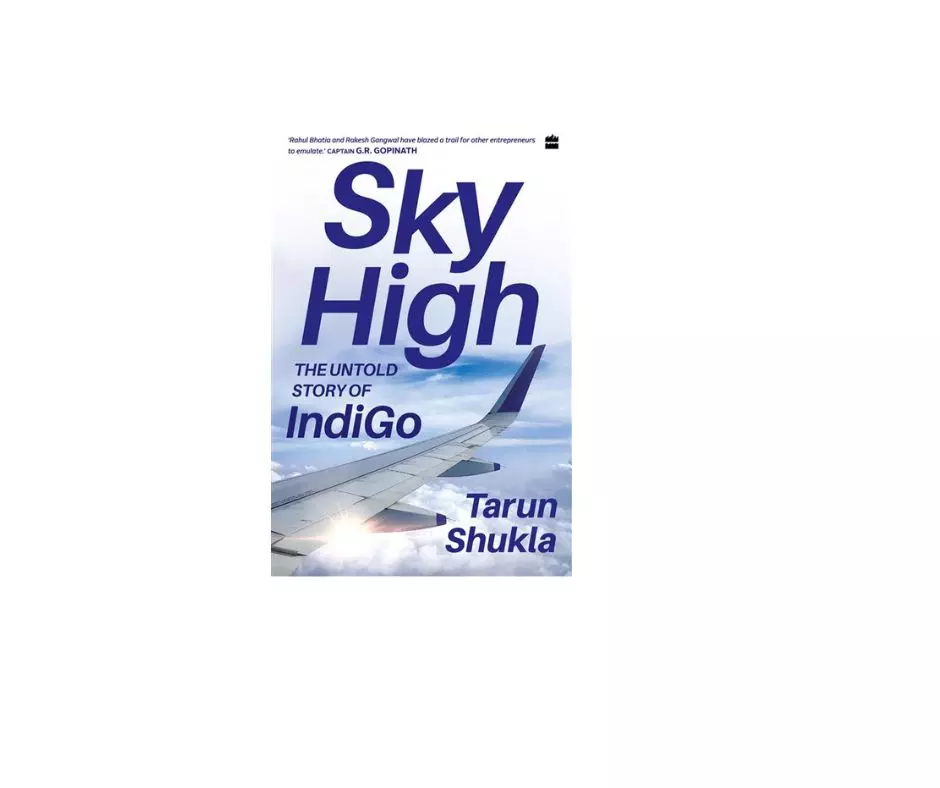
The story of IndiGo airlines was long overdue and the author has scripted a book just the way a hard-nosed reporter would. He has utilised the vast experience he has gathered from his civil aviation beat to give us what can be called a detailed ‘report’, probably a shade beyond a ‘book’. Innumerable interviews add value to every argument presented.
This is a fact-based ‘report’, though the author did not always have his ducks in-a-row – and the presence of a chapter called Cabin Crew does not add much meat to the narrative – yet the lucid prose does not get in the way of robbing you of attention. Sky High may not read like the autobiography of Lee Iacocca or Kishore Biyani’s It Happened in India, but it surely wasn’t meant to be. This is a book for information junkies. We could have done with some better editing, though.
The planning and germination stage of a business is always interesting. IndiGo was promoted on the lines of some foreign low cost carriers (LCC), and the fact that Air Deccan had experimented with an LCC in India pretty successfully, added to the promoters’ confidence. Deccan’s founder Capt. G.R. Gopinath has written a morale-boosting foreword to this book.
Shukla takes us through the back-routes that airline promoters have to go through to get even a single aircraft in the air in India. While an LCC was an obvious choice, the level of micromanagement needed to keep it afloat in an overtly price sensitive market is a gripping story.
If you sit back and think, the book tells the story of a hustle like no other. The sheer audacity of the unknown unit of the Rakesh Gangwal-Rahul Bhatia-combine pitching with Airbus for a 100-aircraft order underscores the depth of planning that preceded it. This became evident as Gangwal used his experience in the airline industry to strike deals with not just Airbus, but with every individual OEM, squeezing concessions that made the planes cheaper than what Airbus quoted to even its loyal customers.
Frankly, such stories have always emanated from the US business landscape, never in India. In India, Biyani’s story sold till it didn’t, ending up in court within a messy Amazon-Reliance brawl. Growth is great, as long as it incorporates pragmatism, and the IndiGo story seems to be really reaching skies, the new Tata-Air India chapter notwithstanding.
The story of how InterGlobe (the holding company of IndiGo) managed to fund its initial buys quickly is a lesson in smart business practices. As Airbus, pushed to wall to cut corners and reduce price, delivered a jet, Indigo would immediately sell it at a handsome profit to an aircraft leasing company. IndiGo would then lease it back. In the process, IndiGo would make a good profit out of a purchase and then, with tight management, would be able to service the lease payments. Later, with funds in surplus, IndiGo started buying planes directly.
Also, the Gangwal-Bhatia amalgam was the perfect promoter system, with Gangwal a hard-nosed Marwari out of Kolkata and Rahul Bhatia a seemingly relaxed operator, weaving his way around the corridors of power with ease. The two created a sort of ‘good cop bad cop’ routine. It worked. Their fallout later, including Gangwal exiting the company was sad, but remains par for the course in any major business venture around the world.
The entire effort of the promoter duo has to be viewed in the backdrop of the economic situation of the country at the time. The hangover from the Licence Raj remained thoroughly entrenched in the psyche of the babus, and there was also an air of uncertainty as to the real financial strength of the burgeoning middle class of India. And then 9/11 happened and airlines were all bleeding if at all in the air. The duo’s dream carpet had to be woven with tender fingers.
Cost control and brand building were two exercises well dealt with in the book. IndiGo, using several modes available to it (many of which Air Deccan missed out on), made a splash without actually making a splash. The brand fights across hoardings and other platforms are a pleasure to read, and reminds one of gems in the Jaguar-Mercedes ad tussles.
Cost reduction methods (mainly through fuel saving) were novel. The composition of onboard food (to sell) was one item much researched. It reminds one of how just cutting an olive from the dinner salad saved American Airlines US$ 40,000 in the 1980s. However, how safe is the replacement of printed technical manuals (many desperately needed in emergency situations) by iPads is not clear, though the DGCA cleared it.
The chapter, Lobbying, lays out the slimy and underhand deals that are struck by lobbyists in India with top government officials and ministers. Indigo slowly learned how to game the system and the book mentions some of the questionable acts of the then civil aviation minister Praful Patel and his coterie. The CBI closed all cases as he shifted to the BJP. To the author’s credit, he does not mince words while laying bare even Bhatia and his company’s officers.
Overall, this is a book for keeps, and needs further, updated editions.
Sky High: The IndiGo Story
By Tarun Shukla
HarperCollins
pp. 272; Rs 699
